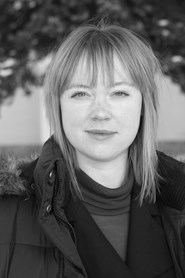
I became PhD in 2006 and associate professor in 2011. I have since worked at the Department of Geography in a number of research projects but also with teaching and pedagogical issues.
I am a PhD, senior lecturer and associate professor in cultural geography. PhD in 2006 and has since worked at the Department of Geography, Umeå University. I defended my dissertation in 2006 with the title “Restructuring and employment change in sparsely populated areas: examples from Northern Sweden and Finland” and my geographical focus has always been on the sparsely populated areas in what we call the Arctic. For me, the interest lies, among other things, in regional economic issues regarding resources. What is a resource? How does this resource change with climate change? Can the view of what a resource is change and thus provide new opportunities for people to live here? How can natural conditions be used in a sustainable way for development and what does development really mean - is it just growth? I want to understand how the conditions for living change and how people and societies relate to this, through struggle, through strategies and through innovations, for example. The geographical area is central here because the location-specific conditions are important for the development of society and that there are also large geographical variations within the Arctic in terms of sparsity, infrastructure and conditions for living and working on the basis of national frameworks. I have led a number of research projects and I am a board member of Gösta Skoglund's international fund and am chairman of CERUM's scientific council and responsible for postgraduate education for the Arctic Graduate School with a focus on sustainable development.
I have worked a lot with teaching and pedagogical issues in the role of course coordinator and program coordinator for the master's program in tourism and I also have a background as director of studies at the department. Above all, my teaching has been at the master's level in tourism, but I also teach in, among other things, geographical information systems (GIS) at the basic level.